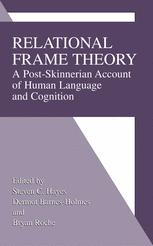

Most ebook files are in PDF format, so you can easily read them using various software such as Foxit Reader or directly on the Google Chrome browser.
Some ebook files are released by publishers in other formats such as .awz, .mobi, .epub, .fb2, etc. You may need to install specific software to read these formats on mobile/PC, such as Calibre.
Please read the tutorial at this link: https://ebookbell.com/faq
We offer FREE conversion to the popular formats you request; however, this may take some time. Therefore, right after payment, please email us, and we will try to provide the service as quickly as possible.
For some exceptional file formats or broken links (if any), please refrain from opening any disputes. Instead, email us first, and we will try to assist within a maximum of 6 hours.
EbookBell Team

4.1
50 reviewsHuman language and our use of it to communicate or to understand the world requires deriving relations among events: for example, if A=B and A=C, then B=C. Relational frame theory argues that such performances are at the heart of any meaningful psychology of language and cognition. From a very early age, human beings learn relations of similarity, difference, comparison, time, and so on, and modify what they do in a given situation based on its derived relation to others situations and what is known about them.
This volume goes beyond theory and gives the empirical and conceptual tools to conduct an experimental analysis of virtually every substantive topic in human language and cognition, both basic and applied. As the term `post-Skinnerian' suggests, this volume challenges behavioral psychology to abandon many of the specific theoretical formulations of its most prominent historical leader in the domain of complex human behavior, especially in human language and cognition, and approach the field from a new direction.
The need for a pragmatically useful analysis of language and cognition is as enormous and varied as its extensions and applications. This volume will be of interest not only to behavior theorists but also to cognitive psychologists, therapists, educators, and anyone studying the human condition.